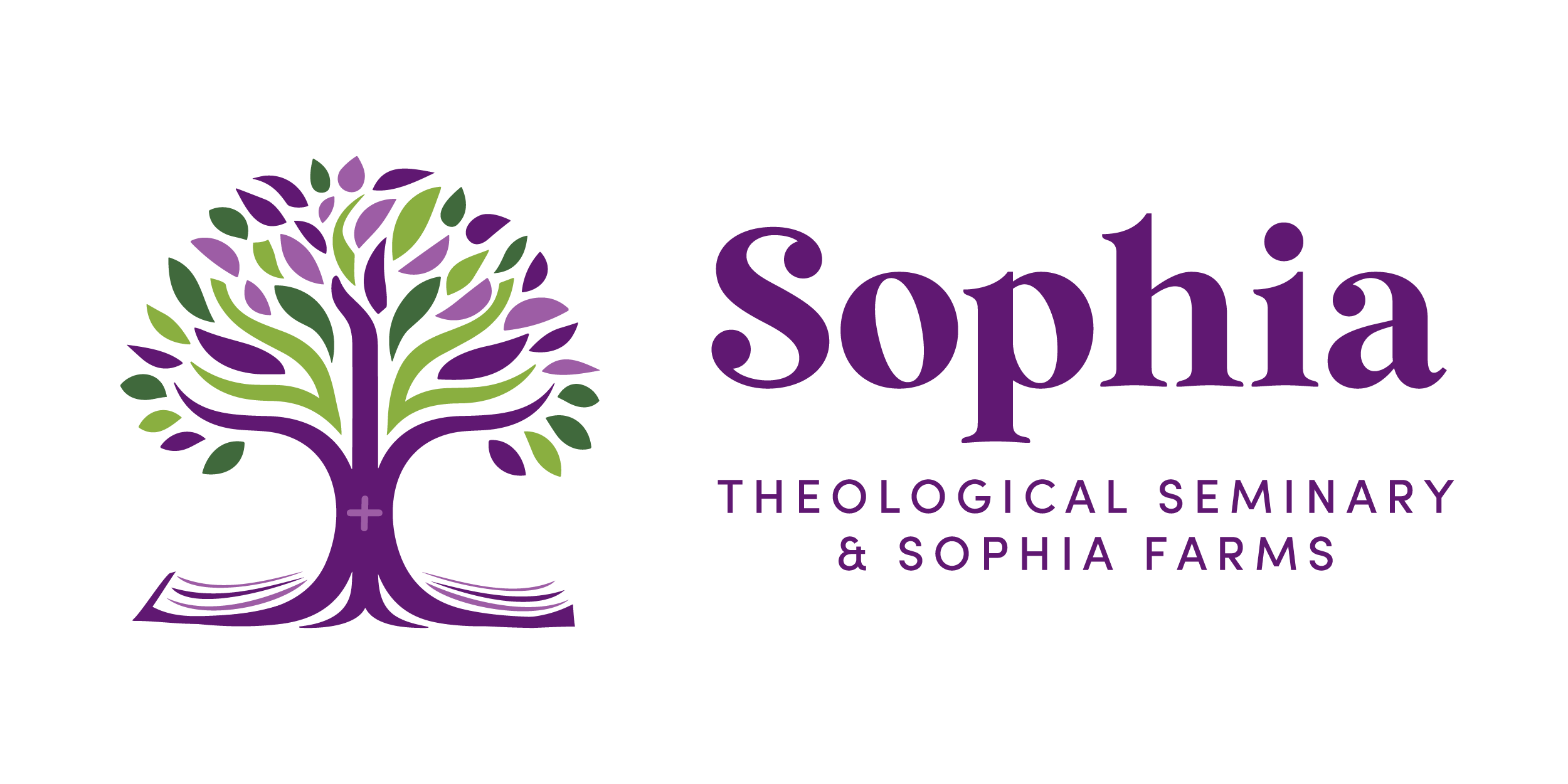Discernment, Preparation, Collaboration, Transformation: Studying at Sophia Seminary
Sophia Seminary offers a unique degree in a unique setting.
- a Master of Divinity completed in 27 months
- tuition and housing are “paid” by working 10 hours a week on the farm
- students craft a program of study shaped by their vocational goals, from the traditional to the as-yet-only-imagined
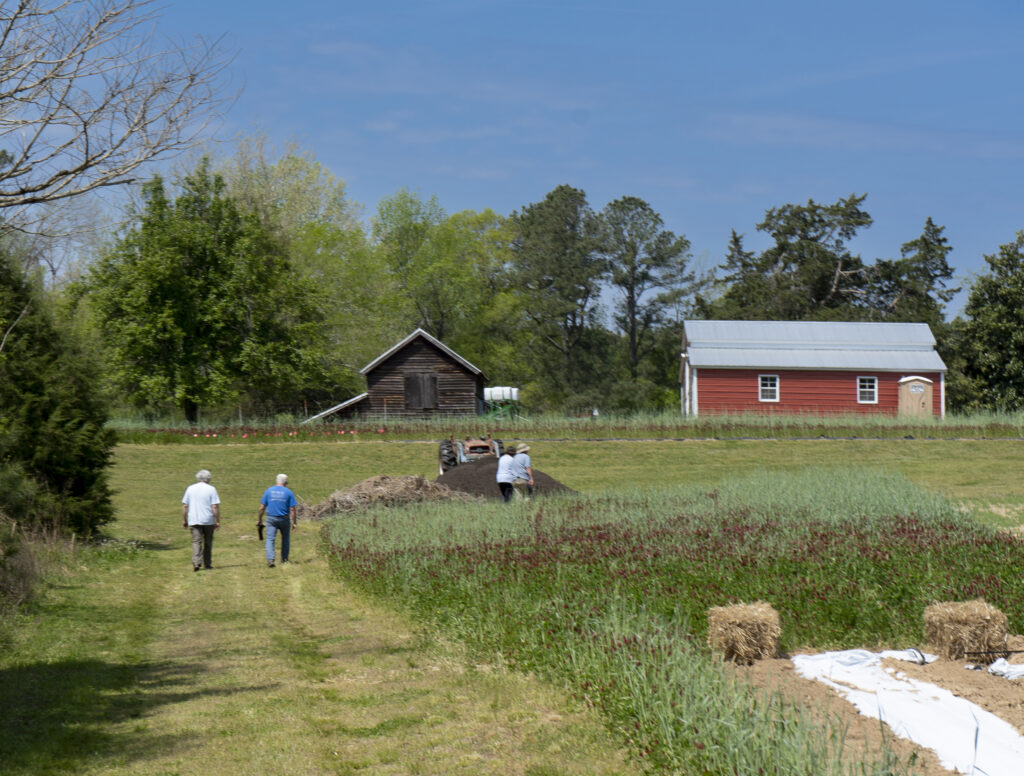
A Master of Divinity at Sophia Seminary
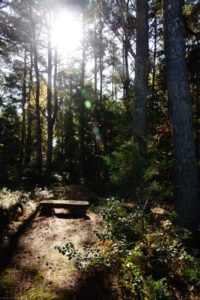 Sophia Seminary’s Master of Divinity is completed in 27 months, 2 full years plus a final summer term. This innovative program is built around:
Sophia Seminary’s Master of Divinity is completed in 27 months, 2 full years plus a final summer term. This innovative program is built around:
- small classes of approximately 12 students moving together through their time at seminary as a cohort
- integrated learning: across disciplines, across artificial notions of “academic” and “applied,” and between the classroom and the land
- integrated teaching: professors team-teach in thematic seminars shaped by student scholarship and leadership
an average of 10 hours a week working on the farm; by providing this labor, students have no tuition and housing costs - a June to May year-round academic calendar, with Sabbath breaks scheduled throughout
- daily and weekly rhythms of study, work, rest, worship, and fellowship
The Seminary curriculum is organized around a series of weekly seminars. Students progress through the seminars as a year cohort. Seminars are:
- integrated across the disciplines of theological education: biblical studies, theology/ethics, church history, missiology, and applied disciplines, such as homiletics and pastoral theology/care
- held 5-6 hours per week
- students spend the majority of their study time in independent research and writing, allowing students to pursue their areas of interest
- facilitated in a team-taught environment amongst faculty members across disciplines with the participation of faith leaders in the community.
Funding Your Seminary Degree
Laboring Together on the Farm
Sophia Theological Seminary is supported by the work of Sophia Farms. Members of the Seminary community contribute their labor to this work. Students “fund” their tuition and housing by working, on average, 10 hours a week in farm-related activities.
Applicants to Sophia do not need to have farm experience or even know a cabbage from a tomato. Work on the farm varies widely — it’s not all picking vegetables — and requires the full variety of gifts and abilities students bring. A sampling of regular work on the farm includes:
- preparing the land
- planting, tending, and harvesting crops
- packing and transporting produce
- managing the CSA
- managing tech and other admin
- marketing and publicizing farm products
- planning for and attending sales events
- researching farming methods and best practices
maintaining farm property and equipment - nurturing relationships with partners
Ministry Placement
In a placement with one of Sophia’s Covenant Partners, each student serves with a church or other ministry partner. Sophia aids in securing a placement that is paid. Students and Covenant Partners together forge a covenant that will guide their mutual relationship.
Who are Sophia’s Students?
Sophia seeks students with a pioneering and creative spirit who will relish the opportunity to help shape this new community, its present and its future, as a community
- of inclusion,
- of freedom,
- of belonging,
- of safety.
Sophia’s Students
- are innovative, risk-taking, and self-motivated – in their seminary work, on the farm, and their understanding of Christian ministry
- expect to be transformed by their seminary experience
- do not need to have experience working the land but are deeply committed to creation justice as an expression of their faithfulness to God and as an intersection of God’s mission, the student’s calling, and the world’s need
- welcome the commitment to living in community together
are able and motivated for academic challenge and hard work
Sophia Theological Seminary aspires to send, into ministry and the world, graduates who are
- deep-thinking,
- hard-working,
- world-changing disciples of Jesus Christ.
A Day in the Life of a Sophia Student
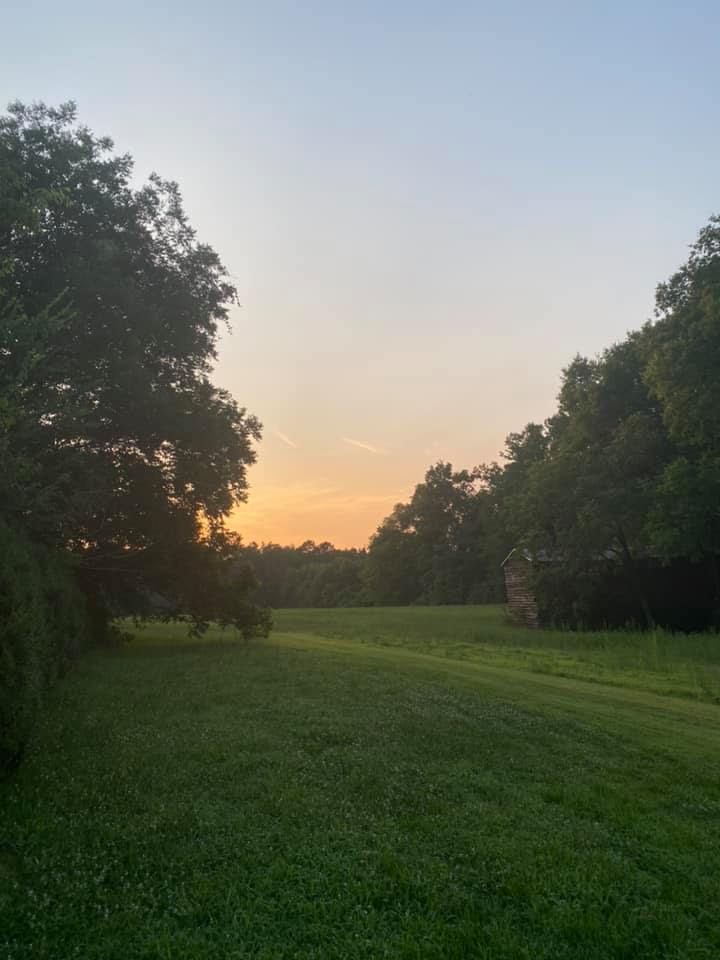 A student begins the day in the classroom of the earth, learning about God’s good creation by feeling it, working with it, helping coax its fruit to maturity. After a scrub and an exchanging of work gloves and hat for pen, notebook, and laptop, the student takes a chair around a table with professors and peers, learning about God’s good creation in lively discussion about Genesis 1-3, the agrarian parables of the New Testament, how a pastor approaches the challenge of preaching such familiar texts, eco-theology, practices of Sabbath, debates of science and scripture, humans as co-creators with God, bringing creative arts into our worship.
A student begins the day in the classroom of the earth, learning about God’s good creation by feeling it, working with it, helping coax its fruit to maturity. After a scrub and an exchanging of work gloves and hat for pen, notebook, and laptop, the student takes a chair around a table with professors and peers, learning about God’s good creation in lively discussion about Genesis 1-3, the agrarian parables of the New Testament, how a pastor approaches the challenge of preaching such familiar texts, eco-theology, practices of Sabbath, debates of science and scripture, humans as co-creators with God, bringing creative arts into our worship.
When this lively seminar concludes, the rhythm of the day shifts as the student enters with the community into a time of worship – to pray and sing and praise God for the gifts of work and play and study. The student then joins the community’s shared meal, partaking of the earth’s fruits, in fellowship with others. The evening’s activity is a return to study and then rest. A day of returning thanks for the many gifts of God’s good creation.
Applying to Sophia Seminary
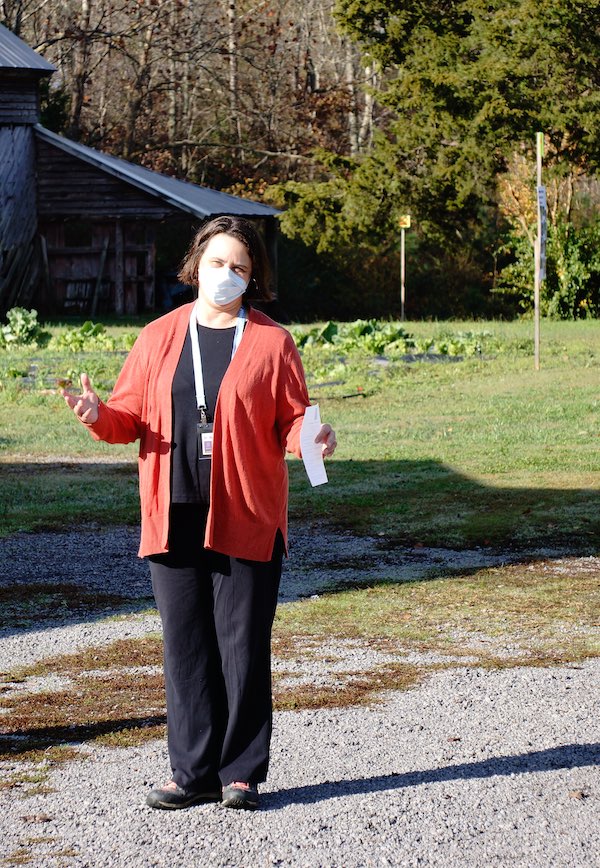 Sophia invites applicants to its Master of Divinity program who hear the call of God’s Spirit and have intellectual abilities, emotional capacities, and spiritual disciplines necessary to be Christ-like leaders in ministry.
Sophia invites applicants to its Master of Divinity program who hear the call of God’s Spirit and have intellectual abilities, emotional capacities, and spiritual disciplines necessary to be Christ-like leaders in ministry.
Consideration for admission is holistic, based on the collective quality of a student’s application. No single admissions requirement, on its own, is disqualifying. The Seminary is, however, selective in its admissions standards. Due to the seminar- and research-based curriculum of the Seminary, prospective students must be self-motivated, and capable of guided and independent research.
Sophia claims its heritage as little ‘b’ baptist, a historical heritage that stretches beyond specific denominational boundaries. Sophia, therefore, welcomes applications from students without regard to denominational background. For students from denominations or traditions with specific ordination requirements, Sophia will work in coordination with the student and the denomination to make provision for those requirements.
2025 Timeline
| Mar 29 | Date by which Sophia will notify applicants of acceptance |
| May 14-16 | Matriculation |
| May 17 | Community Celebration and Orientation |
| May 19-26 | Reading Days and Farm Work |
| May 27 | Academic Year (Summer Term) Begins/Convocation |
Interested in Applying?
Information to review as you prepare to apply:
- Consult the checklist below to aid in gathering your application materials.
- Detailed instructions and any needed forms (or links to external forms, as necessary) are included in the application. If you have an impediment to prevent your completing the application online, please request a mailed application by contacting admissions@sophiasem.org.
- You do not have to complete the application in one sitting. You will be able to save any progress and return to your application to complete it in as many sessions as needed.
- Contact us with your questions regarding the application process, the Farm, life as a student, or anything else at studentinfo@sophiasem.org.
Checklist for Applying
Persons seeking entry into the Master of Divinity program must submit an application containing the following items:
- Completed online application form.
- Proof of a completed bachelor’s degree from a regionally accredited college or university, with a minimum cumulative GPA of 2.75 and a preferred cumulative Humanities GPA of 3.25 for the humanities. Applicant must submit official transcripts from all higher education institutions attended. For transcripts to be considered official, they must be submitted directly to the Seminary from the registrar’s office of the institutions. Applicant should have electronic transcripts sent to transcripts@sophiasem.org. Transcripts in hard copy should be mailed to Sophia Theological Seminary, PO Box 266, Dinwiddie, VA 23841.
- Resume, including any church positions and service, other employment, community involvement, academic honors, and other awards. To be uploaded in the online application.
- Autobiographical essay of 1250-1500 words addressing four matters: (1) your Christian pilgrimage, (2) your call to ministry, (3) your decision to apply to Sophia Theology Seminary, including your expectations for your seminary experience, and (4) your goals for ministry, as you currently envision them. To be uploaded in the online application.
- Academic writing sample of 2000-2500 words on any topic from the Humanities. The sample must include in-text citations or footnotes and an appended bibliography. It may be an excerpt of a larger work. To be uploaded in the online application.
- Three letters of recommendation: one from a church leader (from past or present) and two others: from 2 professors, 2 professional supervisors, or one from each. References should be able to evaluate the applicant’s academic and professional qualifications and to speak to the applicant’s character, capability, and clarity of purpose. In the online application, the applicant provides contact information for references, and a form with the request for a reference is automatically sent via email to each reference.
- Background check. Click here to be taken to the external site to complete the application for the background check. The fee of $24.95 is the responsibility of the student. Faculty evaluate the nature of the offense in making a decision. Upon request, applicants are provided an opportunity to respond to information in the background check.
- Application fee of $40 (non-refundable).
- Interview, in-person or video conference: Once the Seminary receives all above materials, a faculty member will contact the candidate to set up an interview, in-person or video conference. For the candidate to best prepare, the faculty member will also share the slate of interview questions with the candidate in advance.
- Written reflection on the interview. In what will serve as both a final component of the application process and an initial component of an accepted student’s portfolio of work, the candidate is asked to write a reflection (500-750 words) on the interview. Reflection will be due 2 weeks from the date of the interview.
Non-discrimination Statement
 Sophia Theological Seminary values diversity and challenges structures that intentionally or unintentionally encourage and enable discrimination. As such, the Seminary does not discriminate on the basis of race, color, age, sex, gender identity, gender expression, sexual orientation, national origin, citizenship status, religion, disability status, membership in uniformed service, or any other category protected by applicable law.
Sophia Theological Seminary values diversity and challenges structures that intentionally or unintentionally encourage and enable discrimination. As such, the Seminary does not discriminate on the basis of race, color, age, sex, gender identity, gender expression, sexual orientation, national origin, citizenship status, religion, disability status, membership in uniformed service, or any other category protected by applicable law.
The Seminary is an equal opportunity employer and maintains a policy and associated practices of nondiscrimination with respect to all employees and applicants for employment. All personnel actions, such as recruitment, hiring, compensation and benefits, promotion, and separation, follow this policy and its associated practices of nondiscrimination.
